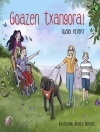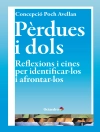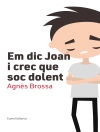This book is the story of my lifelong 2e Journey Informed by Traditional Indigenous Learning
To address the daunting challenges we face as a global community, we need people who can see the world beyond an ‘either-or’ dualistic perspective. This book presumes such a dualistic perspective has been especially damaging to the twice-exceptional (2e) or gifted and learning disabled (Gifted and LD or GLD) children of the world, children who are growing up like I did, gifted and learning disabled. These children have so much potential to see the world as connected and to teach us to honor diversity and complementarity. Yet the Western educational paradigm typically thinks of these children as broken and in need of fixing. 2e children often find themselves separated, provided remedial programs, medicated, and made to feel broken or just ignored as they can appear average. If 2e children are noticed at all, educators usually focus on 2e children’s disabilities rather than on their gifts. If the pattern of medication and behavioral modification intervention causes these children to underperform or drop out of the educational system altogether, we have lost valuable members of society who can help us solve complex challenges.
I propose adding an Indigenous framework to cluster-grouped classrooms to help move toward a more holistic approach for developing 2e children and honoring their gifts, regardless of the gifts children bring to classrooms. With the introduction of traditional Indigenous approaches to education, mindsets can evolve allowing for a rethinking of our educational structures. This borderland experience takes place at the intersection of Indigenous and Western worldviews. Just as cultures collide at their borders, so do worldviews. New un-envisioned cultures and possibilities emerge at these borderlands. By Indigenizing our schools, classrooms, and curriculum, we can educate our children with a more dialogic, holistic, culturally and historically sensitive, and connected approach to learning. Creating such an Indigenous context for schools can prevent the lifelong damage which often comes from a mechanistic approach to education for 2e and Learning Disabled children. This autoethnography ‘imagines’ how my own life’s journey might have been different had Indigenous perspectives been operational in the educational system within which I grew up.
สารบัญ
Acknowledgments xv
Authors Note on Approach to Research xvii
PART ONE
The World of Twice-Exceptionality and a Path Toward Healing
Chapter 1: My Journey 3
Chapter 2: Definitions of Gifted, Learning-Disabled, and Twice-Exceptional Learners 7
Twice-Exceptional 7
Learning Deficits 10
Giftedness 12
Chapter 3: Indigenizing Mainstream Education 15
Chapter 4: Why This Research and a Plea for Change 21
Who Are These Children? 21
Creating a Sense of Urgency to Address This Gap 24
Hope for the Future 28
PART TWO
My Journey, An Autoethnography
Chapter 5: A Brief Autobiographical Sketch 33
Chapter 6: Early Reading Problems 37
My K-5 Experience 37
Chapter 7: Middle School Years: Another 5th Grade and Private School 49
Chapter 8: High School 61
Chapter 9: My Undergraduate College Years 69
Chapter 10: The Journey to My First Master’s Degree 75
The Impact of Living as a 2e Person 75
Why I Chose to Earn a Master’s in Adult Education 75
Consulting Coming to an End 81
Chapter 11: Overcoming Barriers to Dialogue 85
Internal Barriers to Dialogue 87
External Barriers to Dialogue 91
Chapter 12: A Call to Action 97
PART THREE
A Deep Dive into Theory and Practice: What Does the Literature Say
Chapter 13: Foundation in Literature 103
Chapter 14: Twice-Exceptional Learning 105
Significant Literature 108
Chapter 15: Indigenous Foundations for Education 123
Look to The Mountain 125
Teaching Truly 128
Summary of Literature 131
PART FOUR
Indigenous Learning and the Theories Supporting It
Chapter 16: Indigenous World View of Education 135
A Holistic View of the Learner and Their Environment 136
Indigenous Foundation for Learning 140
PART FIVE
Insights, Conclusions, and Recommendations
Chapter 17: Insights and Conclusions 165
Chapter 18: Future Research Directions and Applications 173
Appendix A: Proposed Classroom for 2e Children 177
Appendix B: Mind Map of Foundational Resources 179
Bibliography 181
Index 193
About the Author 199
เกี่ยวกับผู้แต่ง
Dr. Inman has been blessed with both gifted and deficit exceptionalities. He grew up believing he was broken and in need of fixing, a frame of mind that has haunted him his whole life. He did not realize he had gifts until conducting research for his doctorate in education. Rather than just experience the impact of being 2e, Dr. Inman decided to do something about the experience other children have growing up feeling broken and in need of fixing. This work is the outcome of that mission.
With a deep understanding of how humans organize into communities, how humans communicate through dialogue to create meaningful and lasting change, and how humans of all ages learn, grow and contribute to the world, he helps educators of all types come together to craft their unique paths forward to transform how children and adults learn.
Dr. Inman grew up unable to read the way his school system taught, methods unchanged in 55 years, and understands how so many children wither in the predominant education systems. His work is founded on the concept of Universal Design for Learning (UDL) and any strategy that helps move a school system toward teaching the way children learn vs. forcing children to learn how the teacher teaches is of interest. Dr. Inman embraces learning strategies that include traditional Indigenous learning, andragogy, flipped classrooms, cognitive processes design, green inspired classrooms (SEED), multiple pathways, systems thinking, cluster-grouped classrooms, technology-assisted learning, situated learning, and scenario-based learning. He helps education communities design their transformation approach based on these and any number of other strategies.
Dr. Inman earned his doctorate in educational leadership for change from Fielding Graduate University in 2015 and currently is the founding faculty for the applied management bachelors’ program at Tacoma Community College in Tacoma Washington.
Contact Dr. Inman at [email protected] to explore how he might support your transformation of your educational community or visit him on his web site at www.learningexceptionalities.com












